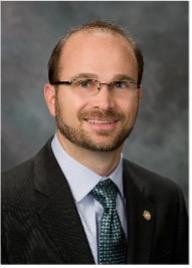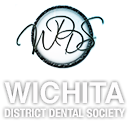Location: Distillery 244, 244 N. Mosley, Wichita
Time: 9 a.m. – 4 p.m. (doors open at 8:00 a.m.)
Lunch and snacks provided for each registrant.
Dr. Bryan Novy
Codependent Cariology and Offensive Dentistry
Total CEs: 6

About Dr. Novy
Dr. Novy holds faculty appointments at Western University, and Harvard School of Dental Medicine. He served on the American Dental Association Council of Scientific Affairs from 2010-2014, and in 2016 was appointed the consumer representative, United States Food & Drug Administration Dental Products Panel. His papers pertaining to cariology and dental materials are published in various journals including the Journal of the American Dental Association, the Journal of Dental Research, the Journal of Evidence Based Dentistry, Dentistry Today, Dental Economics, and the National Academy of Medicine. His awards include the ADA Evidence Based Practice Award, the American Dental Association Adult Preventive Care Practice of the Year, the Dugoni Award, and the Academy of General Dentistry Weclew Award.
CODEPENDENT CARIOLOGY (half day)
Depriving cariogenic bacteria of sugar is the cornerstone of traditional caries management, yet the science of CAMBRA (Caries Management By Risk Assessment) takes cariology to a whole new level. If you’re still telling patients to, “Brush, floss, and use fluoride toothpaste” you’re going to be surprised by the myriad of treatment options available today. Streptococcus mutans has more to fear than stronger fluoride and more of it, as dentistry embraces oral healthcare.
At the end of this course, participants should be able to:
• Identify risk factors leading to caries
• Explain the role of commensals
• Implement disease management in practice
• Prolong the life of restorations in all patients
OFFENSIVE DENTISTRY (half day)
Let’s face it, sitting through a lecture about dental caries or caries risk assessment isn’t appealing (in fact it sounds downright boring). However, the science of clinical cariology is beginning to have an impact on restorative techniques and technology. Streptococcus mutans has more to fear than a rheostat, now that we’re armed with salivary diagnostics and bioactive materials.
At the end of this course, participants should be able to:
• Intervene medically in the caries process
• Control patient caries risk with focused therapeutics
• Design restorations to minimize recurrent decay
• Improve the prognosis of restorative treatment
